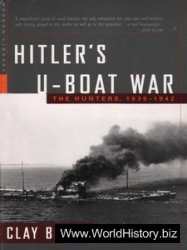Charles I, who succeeded his father in March 1625, also started his reign with a difficult relationship with parliament. His problems stemmed from foreign affairs. His father had been able to stay out of the religious warfare that was sweeping continental Europe at the time, in what would be called the Thirty Years' War. More zealous Protestant elements in England, namely those members of the Church of England with a more Calvinist disposition, desired English entry on the side of the Protestant alliance, which counted among its members at various times Brandenburg (ultimately Prussia), the Netherlands, and Sweden. However, the same interventionists were usually reluctant to provide the monarch with the financial resources for warfare. Charles had entered into war with Spain following the failure of efforts to win the hand of the Spanish princess. In this way England found itself partially backed into the Thirty Years' War, since the Hapsburg rulers of Spain were important members of the Catholic alliance.
Charles eventually married the French princess, Henrietta Maria, but that did not deter him from entering into war with France as well. Both the historic close links of Spain with the Irish Catholics and the failure of an English effort to assist French Protestants in the siege of La Rochelle raised the perennial fears about Ireland as the backdoor for England's continental enemies. Demands rose to raise an army to defend Ireland from foreign invasion as well as to secure the funds to support that army.
Charles saw a source of support in the Old English of Ireland. Many in the government had been convinced that relieving their grievances might result in their supplying and supporting soldiers. In 1627 Charles met a delegation from Ireland, eight Catholics and three Protestants, who agreed to provide him with a subsidy of ?40,000 annually in return for concessions, which he instructed his government in Ireland to give. These "instructions and graces" which amounted to 51 items in all, included replacing the Oath of Supremacy with one of allegiance that would allow uninhibited Catholic inheritance and admission to legal practice, the appointment of some Catholics as army commanders, and the guarantee of security of title for all landholders of more than 60 years standing. The "Graces" were to be confirmed by an act of the Irish parliament, which was summoned for the first time since 1615 in 1628 by the lord deputy, Viscount Falkland. However, because the summoning of the parliament had not received the sanction of the English Privy Council as required by Poynings' Law, the parliament was postponed. Several months later peace was made with France and then Spain, ending the sense of crisis that had prompted the generosity of the "Graces." There was no need for a parliament, nor the implementation of the "Graces," even though the first subsidy of ?40,000 had been advanced.




 World History
World History









